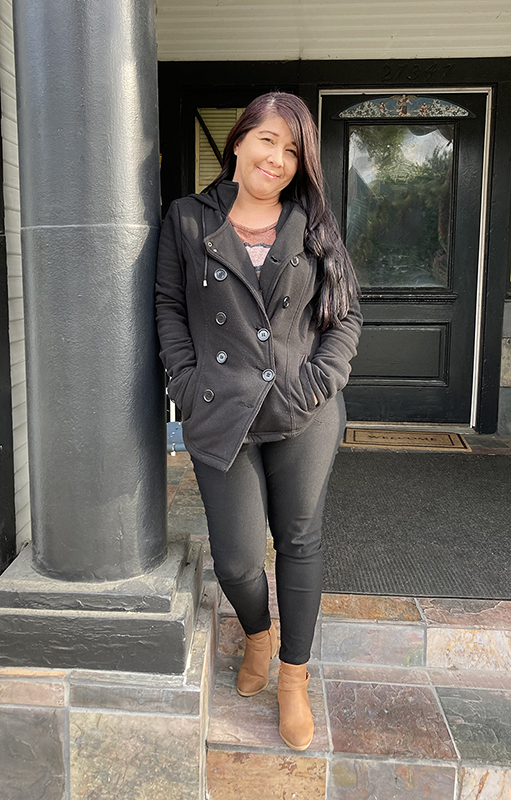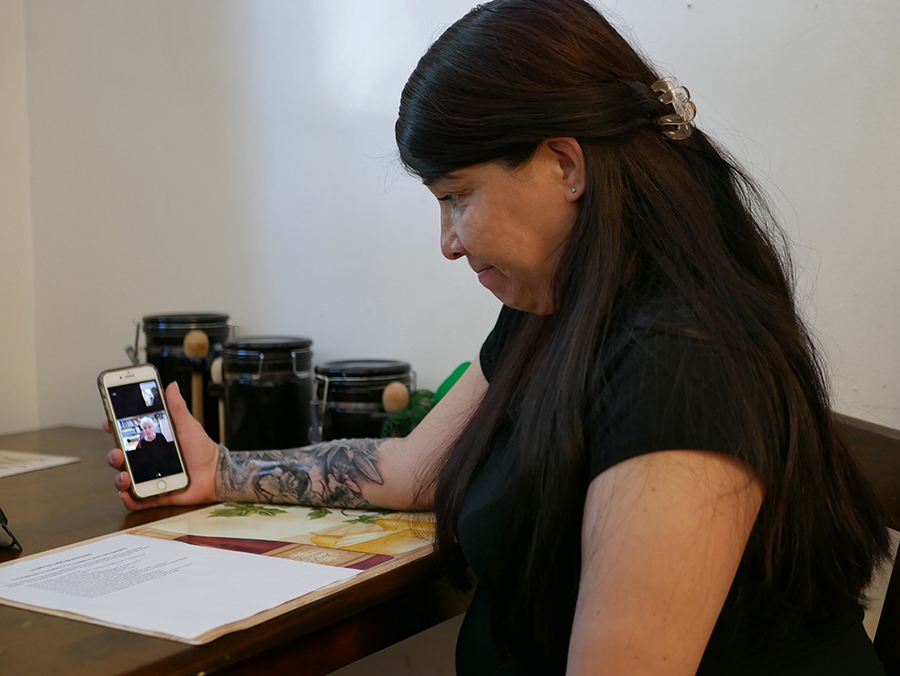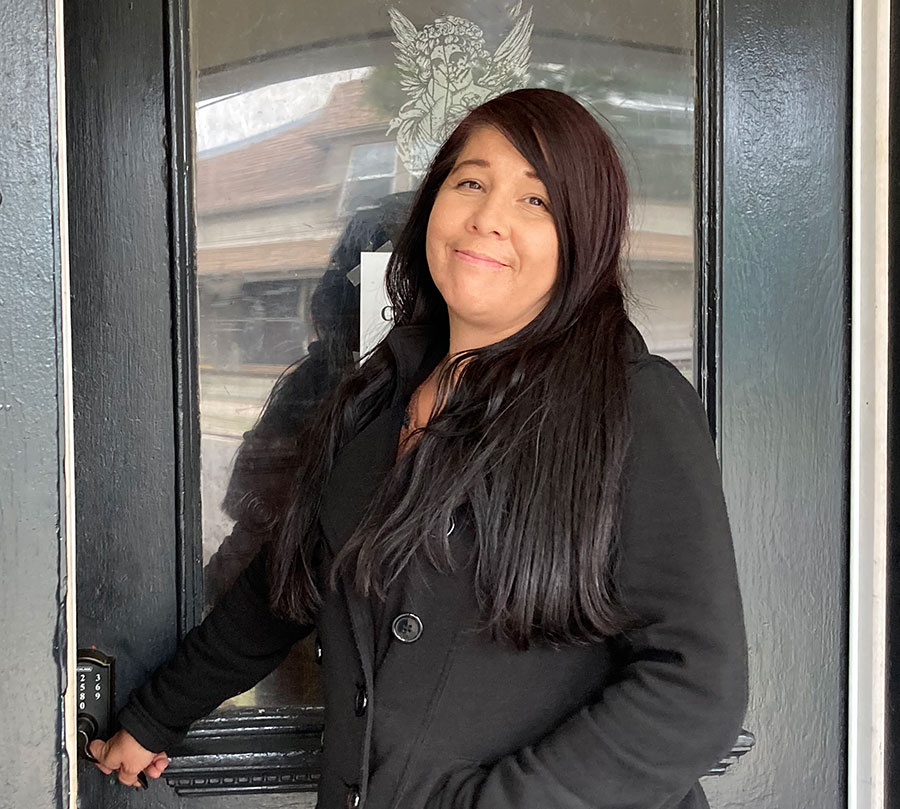Teresa is just 46 years old and has now been permanently housed with Step Up for over four years! A native of San Bernardino County, Teresa experienced homelessness for three years due to severe depression and anxiety, living through suicidal thoughts and drug addiction. Teresa credits the Step Up team with helping her to open up about her feelings and to begin trusting herself and others.
“I was dealing with a lot of mental illness. I went from living in my car, to trying to commit suicide in my car, totaling my car and just dealing with a lot of mental issues, depression. I ended up on the streets after I lost my job so I couldn’t afford to stay anywhere.”
Teresa ended up spending three long years in a tent in a San Bernardino park until one day she was approached by the Step Up outreach team, asking if she wanted to be in the program, “At the time, I was in denial about my mental health. But when I described what I was feeling, they said, ‘well, that’s mental health, that’s depression.’ At that point, I felt like there was no hope and I felt like I didn’t have anything else to lose by taking a chance and listening to them.”

Having a home was a major turning point, as Teresa finally realized she had an opportunity to change, “Oh my god, it was so refreshing! It was kind of unreal that is was really my place! That’s when I realized that I could take care of my mental health. That’s what got me going in the right direction. I was on drugs, and I felt like if somebody gave me the opportunity to change, I’d be dumb not to take it.”
In addition to meeting with her case worker individually, Teresa became part of a “Seeking Safety” support group led by Step Up’s Inland Empire team, an evidence-based practice that helps members reach a state of safety without reliving past trauma. There, Teresa connected with other females in the group with honesty and openness, and says her Step Up case worker Michelle kept her motivated. “Michelle would always tell me, ‘I’m not doing the work Teresa, you’re doing the work. I’m holding the mirror and that’s your reflection in the mirror.’ I never understood what she meant by that, but I do now.” Over time, the relationships Teresa built with Step Up team members and her support group formed the foundation of her recovery, as well as supporting her in making the choice to get out of a toxic relationship.

Teresa currently works as a substance abuse counselor at a residential treatment recovery center in Riverside, California, “I like helping people get a plan together and follow that plan. I tell people to be honest and open with their therapist, that they may not see it at first, but eventually they will see the issues that are keeping them from moving forward.” Teresa completed her AOD (Alcohol and Other Drug Abuse) certificate two years ago, and is now working towards an associate degree in social work at the local community college to obtain her license. She is also taking a pottery class and exercising daily for her own self-care.
September is Suicide Prevention Awareness Month. As one of Step Up’s clinical supervisors, Eri Nakagami shares, “It is a myth that the only effective intervention for suicide comes from professional psychotherapists. The fact is that all people who interact with people in crisis can help them by way of emotional support and encouragement.” Supporters like you are vital allies for Step Up in promoting mental health advocacy, sharing stories and resources that are truly life changing. Simply acknowledging and talking about suicide can reduce suicidal ideation. Teresa’s advice for anyone with a family member dealing with a mental illness? “Just be very supportive. Be in contact with them, don’t give up on them because they may not realize that they need help. We need to make people aware they are not alone and encourage them to trust the right people to get the help that they need.”






